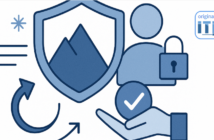The reluctance of companies to implement innovative solutions until the situation becomes critical can be attributed to several factors:
- Risk Aversion: Many businesses are inherently risk-averse. They may be concerned about potential disruptions, implementation challenges, and the uncertainty associated with new technologies. The fear of failure often prevents them from adopting innovative solutions until it becomes absolutely necessary.
- Cost and Resource Concerns: Implementing innovative solutions often requires a significant investment of both time and money. Companies may be hesitant to allocate resources to new technologies when existing systems seem to be functioning adequately. The perceived high cost of innovation can act as a deterrent.
- Lack of Awareness: Some companies may not be fully aware of the benefits of innovative solutions or may not understand how these solutions can address their specific pain points. This lack of awareness can lead to a resistance to change.
- Legacy Systems and Inertia: Established companies with legacy systems may be resistant to change due to the familiarity and sunk costs associated with their current infrastructure. There might be a perception that migrating to new solutions is too disruptive or challenging.
- Industry Regulations and Compliance: Certain industries, such as finance and healthcare, are heavily regulated. Companies in these sectors may be more reluctant to adopt new technologies due to concerns about compliance and the need to adhere to strict regulatory standards.
Regarding verticals that are particularly conservative, it’s challenging to generalize as the willingness to adopt innovation can vary widely even within the same industry. However, traditionally conservative industries like finance, healthcare, and government tend to be more cautious in adopting new technologies due to regulatory constraints, security concerns, and the critical nature of their operations.

Dmytro Karaptan has a bachelor’s degree in Business Administration from the International Science & Technology University and a Master of Business Administration from Kyiv National Economics University. He also received his Project Management Professional (PMP) certification from the Project Management Institute and is a Microsoft Certified Dynamics Specialist.
Dmytro joined Digicode as an ERP Program Manager to establish its ERP implementation business line, which helps SMBs implement appropriate Microsoft Dynamics 365 ERP solutions.
His team helps automate supply chain and finance processes and integrate them with external tools and systems. By gaining a deep understanding of clients’ businesses, his team delivers tailored ERP systems and provides comprehensive go-live support.





